Israel Asks World To Walk Away From Iran Nuclear Deal
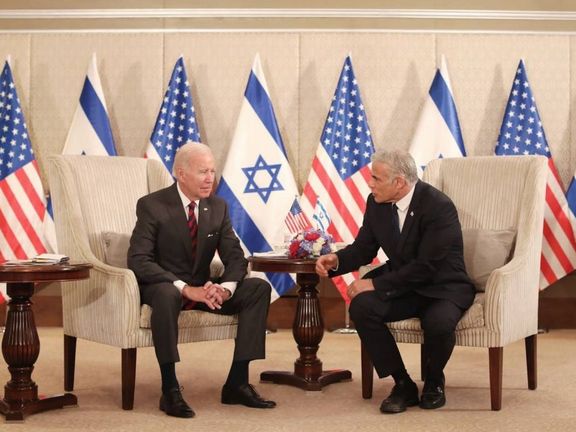
Senior Israeli officials have called on US and European leaders to leave talks with Iran on returning to the 2015 nuclear deal.

Senior Israeli officials have called on US and European leaders to leave talks with Iran on returning to the 2015 nuclear deal.
While Jerusalem believes Iran is close to inking an agreement with world powers, and has started preparing for the announcement of the deal, top Israeli officials said on Thursday that the time has come for Western powers to walk away from talks.
“The Europeans sent Iran a final offer, which doesn’t even meet the demands that the Americans committed to, and established that this offer was ‘take it or leave it,'” said a senior Israeli official at the highest level of decision-making on Thursday, adding that “Iran turned down the offer, and the time has come to get up and walk away.”
“Anything else sends a strong message of weakness,” the official added.
The unnamed senior official, in a briefing to Israeli journalists, also said that the world must now discuss what must be done in order to prevent Iran from abtaining a nuclear weapon.
Earlier on Thursday, Prime Minister Yair Lapid expressed this message in his phone call with German Chancellor Olaf Scholz. He also made the case to US Ambassador Tom Nides, and Florida congressman Ted Deutch, the chairman of the House Subcommittee on the Middle East, North Africa and Global Counterterrorism.
Israel’s National Security Adviser Eyal Hulata will head to Washington, DC, next week to conduct a series of meetings with US officials on the Iran nuclear program.

An Iran-backed hacking group has been targeting Israeli shipping and maritime organizations for the past few years, leading US cybersecurity firm Mandiant has confirmed.
Attackers began threatening maritime commerce in 2020 as the Israel-Iran shadow war increasingly began to play out at sea after mainly being waged on land and in the air, the Virginia-based company said on Wednesday.
The hacking group focused on collecting intelligence from Israeli entities and has also targeted Israeli government, energy and health care organizations.
The company wasn’t clear how successful the hackers had been in their attacks but warned that the intel and data obtained by the Iran-backed group could be leveraged for activities such as damaging leaks or guiding military action.
The shipping industry and the global supply chain are particularly vulnerable to disruption, especially in places where a state of low-level conflict already exists,” John Hultquist, the vice president of threat intelligence at Mandiant, said in a statement, adding that This is a reminder that global companies face global threats. Iran’s cyberconflict with Israel threatens Israel and those who operate there.”
Late in June,Israeli Defense minister Benny Gantz said Iranian Revolutionary Guard conducted research to damage ships, gas stations and industrial plants in several countries including Britain, the US, France and Israel.
Gantz hinted that Israel -- which is widely believed to have waged cyber war against Iran's nuclear facilities and other infrastructure -- may retaliate physically against enemy hackers.
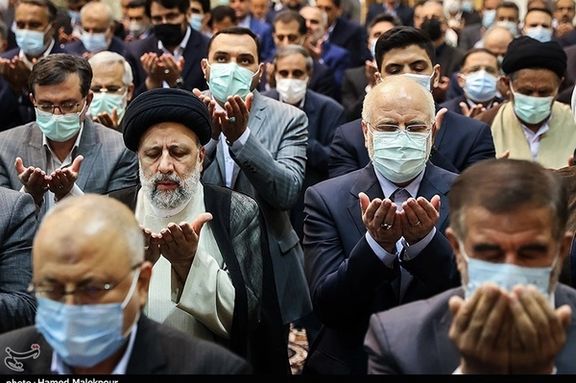
Some details about alleged US sanctions concessions to Iran in case of a nuclear deal is circulating among hardliners in Tehran, obtained by Iran International.
According to this information, the implementation of a nuclear agreement will take 120 days during which a series of steps will be taken by both sides, including the release of Iranians imprisoned in the United States for violating US sanctions and other acts for the benefit of Iran’s government, and US citizens held hostage in Iran.
Iranian hardliners who are circulating the information call it a list of “concessions” by the United States, but this claim cannot be verified.
They include the immediate release of $7 billion frozen in two South Korean banks and annulment of three executive orders signed by former President Donald Trump after he withdrew from the 2015 nuclear deal or the Joint Comprehensive Plan of Action, the JCPOA.
Also, Iran will be allowed to sell 50 million barrels of oil in the 120-day period, presumably with the necessary arrangements for receiving the proceeds through legal banking channels.
Currently, Iran ships its oil primarily to China in clandestine ways and it is not clear how much cash it receives and how much of the trade is based on barter.
The legal sale of 50 million barrels at current crude oil prices would generate another $4 billion for Iran in the first 120 days. The oil in question is most probably what Iran has stockpiled, trying to find customers. There were reports in the past that Tehran might have stored up to 100 million barrels both on land and on tankers.
Also, the information circulating says that sanctions imposed on 17 banks will be removed, which would most probably include the Central Bank of Iran. All other sanctioned Iranian banks are either directly owned by the government or are quasi-state banks, some probably also affiliated with the Revolutionary Guard (IRGC).
Sanctions will be removed from 150 institutions or entities, again all affiliated with the state or with centers of power such as “charitable” organizations linked to the office of the Supreme Leader and possibly the IRGC. However, not having the list of these entities it is hard to be certain.
One name mentioned is a huge business conglomerate, presented as a charity, directly run by Supreme Leader Ali Khamenei’s office. The entity is called The Execution of Imam Khomeini's Order (EIKO), which is known in Persian simply as Setad.
The Biden Administration has been claiming that it will not lift non-nuclear sanctions, such as those imposed for links to terrorism, Iran’s missile program or human rights violations. EIKO was sanctioned on January 13, 2021, days before President trump left office, under the Executive Order (E.O.) 13876, which was imposed for Iran’s regional destabilizing activities and its missile program.
Finally, the information received by Iran International indicates that an exemption will be granted to companies engaging with Iran in case the US withdraws from the agreement and re-imposes sanctions. The duration of this exemption is not mentioned, but it was reported this week that it could be as long as one year.
US Republicans and other critics of reviving the JCPOA under these conditions say that if Democrats lose control of the US Congress, they will derail President Joe Biden’s concessions to Iran.
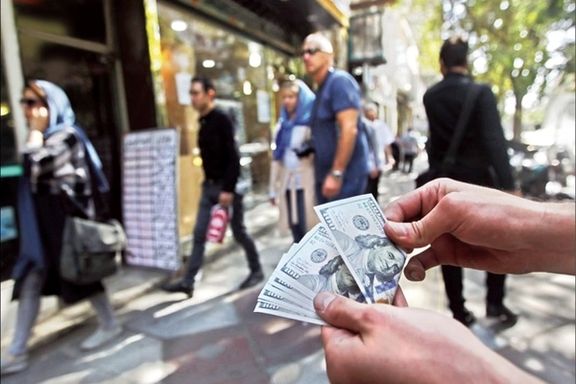
Iran’s government will announce new regulations and act to stem the tide of large and sustained capital flight, the economy minister announced Thursday.
Iran continues to face oil export and international banking sanctions imposed by the United States and a considerable chunk of its foreign currency revenues are invested abroad by those who make money in the beleaguered economy.
Estimates range from 10-15 billion dollars of capital leaving Iran every year, while the country has been under various sanctions for more than 10 years since 2010. Its oil income dwindled from a $100 billion in 2009-2010 to less than $20 billion in 2019, derailing all development plans and creating huge budget deficits.
When the United States withdrew from the Iran nuclear deal in 2018 and re-imposed sanctions, some reports spoke of around $30 billion leaving the country during that year by people who lost confidence in the economy.
The Minister of Economy and Treasury Ehsan Khandouzi says the government and the Central Bank of Iran (CBI) will come up with solutions to reduce capital flight, although he has not explained how.
Iranian businesses and individuals use at least two methods to either take capital out or keep their earnings abroad.
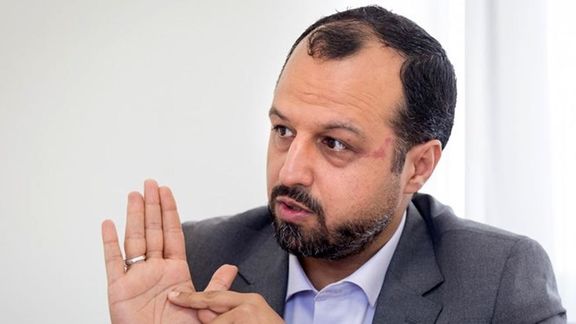
The first pertains to those who have legitimate export or import businesses and receive government dollars at preferential rates, to buy raw materials abroad. There have been accusations that some of that money sent abroad to finance imports, is diverted to foreign bank accounts or invested in other countries. Another loophole is that exporters who are supposed to bring their earnings back do so only partially and keep the rest abroad.
Another way is simply buying dollars and other foreign currencies on the black market and sending it abroad through a very fast, flexible, reliable and cheap informal network of money changers – much like the famous ‘hawala’ system well known in West Asia. One could give a million dollars to a money changer in Tehran and for a fee the funds will be delivered to any foreign country.
Khandouzi told the local media that during the past Iranian calendar year, (March 2021-March 2022) the country’s capital account deficit reached $7.5 billion, a red flag indicating capital flight.
To put in perspective, if Iran would earn $40 billion from oil exports amid US sanctions and $10 billion left the country as fleeing capital, one could argue that foreign earnings were in fact 25 percent less.
It should also be noted that Iran attracts virtually no foreign capital or investments, due to uncertainties and instability generated by its tense foreign relations and the nuclear dispute with the West.
Some of the foreign currency leaving Iran is invested by individuals to buy homes, primarily in Turkey. According to official Turkish government figures, Iranians bought more than 10,000 residential units in 2021. If the average price of each unit was $150,000, Iranians spent $1.5 billion on housing investments in Turkey alone. They also buy homes in the United Arab Emirates, Europe, Canada and the United States.
Among these people many must be government officials or work closely with the government, given the fact that 80 percent of Iran’s economy is owned by the state, quasi-governmental entities and foundations controlled by the ruling elite.
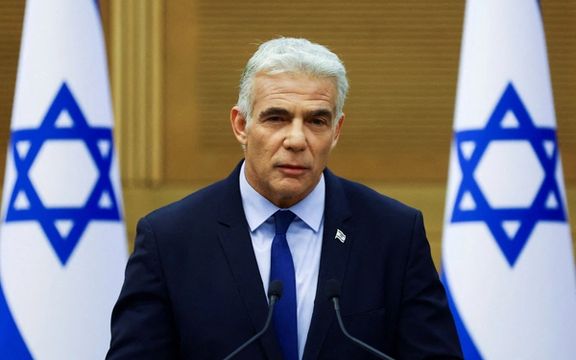
Israeli Prime Minister Yair Lapid and German Chancellor Olaf Scholz discussed the Iran nuclear talks, reiterating that Tehran should not be able to drag out the Vienna negotiations.
Stressing that Iran cannot be allowed to endlessly buy time in Vienna, Lapid expressed Israel’s firm opposition to a return to the deal, adding that it was crucial for the E3 — Germany, France, and the UK — to send a clear message that they would make no further concessions to Iran during the talks.
Earlier in the day, Iranian Foreign Minister Hossein Amir-Abdollahian held a phone call with his Omani counterpart Sayyid Badr al Busaidi, in which he repeated that if Iran’s red lines are respected, a new phase will start in Vienna.
“We will enter a new stage in Vienna Talks once we receive the US response to Iran’s position [submitted to EU mediators on Monday]، if we're assured that we'll reap economic benefits of the JCPOA and our red lines are met," he said.
Referring to Oman’s constructive role during the negotiations, Amir-Abdollahian thanked Doha's efforts to bring the views of different parties attending the negotiations closer.
According to IRNA, Oman's foreign minister also expressed hope that with the cooperation of all sides in Vienna, a satisfactory outcome will be reached.
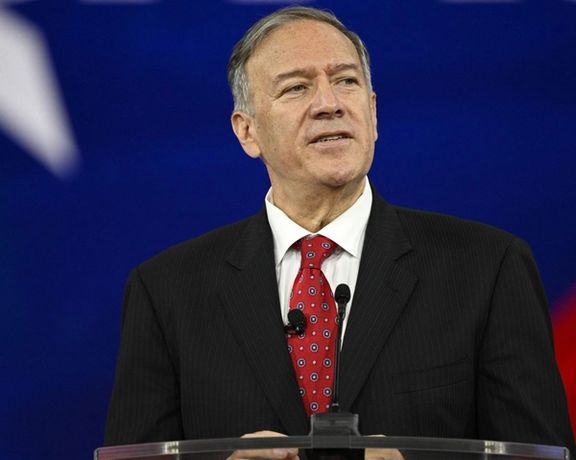
Former secretary of state Mike Pompeo has joined the chorus of US officials who have called on the Biden administration not to allow Iran’s president to enter the US for the UN General Assembly.
Pompeo, who was one of the main targets of a newly-revealed assassination campaigns by Iran, told the Washington Free Beacon that the Biden administration is setting a dangerous precedent by permitting Ebrahim Raisi -- who is on the US and European sanctions list -- into the US to attend UN ceremonies next month following his repeated threats against the US.
"We worked for four years to deny Iranian terrorists the freedom to put Americans at risk. This administration is allowing them to come to New York City while actively engaged in efforts to kill Americans on US soil. The Iranians just recently sponsored an attack that was almost successful in killing an American in that very city. We can do better," Pompeo said, referring to the Justice Department charges against a member of the Revolutionary Guard (IRGC) for an alleged plot to kill former national security advisor John Bolton and Pompeo.
Nikki Haley, the former ambassador to the United Nations during the Trump administration, also criticized the UN for providing a megaphone to the world’s top sponsor of terror.
"This shows just how corrupt and broken the UN is. Even when Iranian terrorists try to assassinate our officials, on our soil, the UN welcomes them with open arms and lets them give a speech," she said.
Earlier in the month, eight US Republican senators, including Tom Cotton, March Rubio, Joni Ernst and Ted Cruz, wrote to President Joe Biden asking him to deny the visa to Raisi.